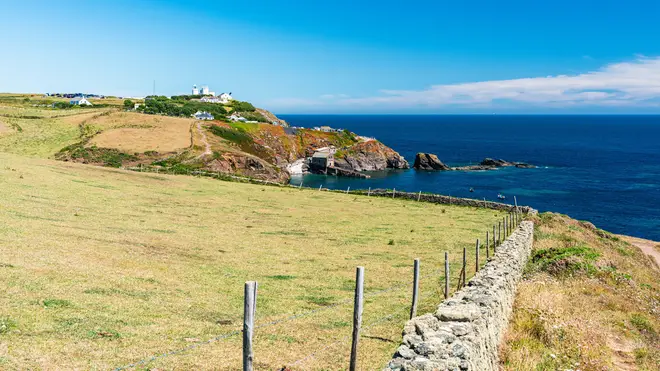
James O'Brien 10am - 1pm
28 July 2022, 05:51

The UK's sea level is rising much faster than it was 100 years ago, according to the Met Office's annual report on the state of the country's climate.
The report states sea levels have risen by around 16.5cm (6.5 ins) since 1990.
But the Met Office says the rate is increasing with sea levels now rising by 3-5.2mm a year, more than double the rate of increase in the early part of last century.
The report, led by the Met Office - looks at temperature, rainfall and sunshine for 2021, as well as seasonal changes such as trees coming into leaf.
Read more: Energy bills could soar to staggering £4k next year as experts warn of power cuts
Read more: Cameras to show judges sentencing Britain's biggest cases in moment of legal history
Long-term trends show sea levels are rising more quickly and the number of air and ground frosts has declined, and the number of days homes need heating in winter has fallen by 11% in the last decade compared to 1961-1990.
It also highlights extreme weather events last year, such as a new Northern Ireland temperature record in July, exceptional rain in October and Storm Arwen, which caused widespread disruption, brought down millions of trees, and caused deaths when it hit in November.
The report shows that last year's average temperatures were just 0.1C above the average for the period 1991-2020, with 2021 the 18th warmest on record in a data series stretching back to 1884.
But most of those 18 warmest years have occurred since the turn of the century, and if 2021's temperatures had occurred before 1990 it would have been the second warmest year on record, the Met Office said.
The most recent decade, from 2012 to 2021, has been 1C warmer than the period 1961-1990, the peer-reviewed report published in the Royal Meteorological Society's International Journal of Climatology shows.
Mike Kendon, from the Met Office National Climate Information Centre, said: "When considering the UK climate over the whole year it might seem rather unremarkable.
"However it is telling that whereas we consider 2021 as near-average for temperature in the context of the current climate, had this occurred just over three decades ago it would have been one of the UK's warmest years on record."
The hottest temperature recorded in 2021 was 32.2C, at Heathrow on July 20.
That peak was relatively cool compared to the past decade, which saw extremes such as 38.7C recorded in 2019, and with an average annual maximum temperature of 34.9C across the 10-year period.
It is also well below the searing extremes of more than 40C seen across parts of England last week.
But the 32.2C maximum was well above the average top annual temperature of 31.4C in the period 1961-1990.
In 2021, rainfall was close to average levels, but levels of rain are also increasing over time, an outcome expected by scientists because as the climate warms, the atmosphere can hold more moisture.
Experts warn that rain is likely to fall in more intense downpours, causing a greater risk of flooding.
The most recent decade has been on average 2% wetter than 1991-2020 and 10% wetter than 1961-1990 for the UK overall, and five of the 10 wettest years in a data series which stretches from 1836 have occurred this century.
Prof Liz Bentley, chief executive of the Royal Meteorological Society, said: "The report is very clear that we are seeing a change in our climate, whether that's temperature, precipitation, sea level rise, if you look over the timescale of the whole series of those different phenomena.
"If we compare the last year to the recent climate, so the last few decades, it isn't that remarkable, it's quite normal now to see these temperatures.
"But if you look back over the whole series, 2021 and the recent climate is very remarkable."
Mr Kendon said: "What we regard as fairly normal now, in the past that would have been pretty unusual, so our perception of what is normal is changing as our climate changes."
But despite the warming climate, cold extremes are still possible, with 2021 seeing the frostiest April in records dating back to 1960, and temperatures plummeting to minus 23C in Braemar, Aberdeenshire in February.
The exceptionally cold April, which was colder than March, caused almost a split spring, with species that normally leaf earlier in the spring such as elder, leafing earlier than normal, while later-leafing species such as oak were delayed by nearly four days.
A warm October meant that trees shed their leaves later, with the average "bare tree" date in autumn delayed for all monitored species.
Professor Tim Sparks, expert volunteer for the Woodland Trust - whose Nature's Calendar citizen science scheme records the signs of the seasons, said that changes to species' behaviour in response to the changing climate could leave them out of sync.
"Each species can change at a different rate, that's where there's potential problems.
"The oak tree, which is one of our most important for biodiversity, can leaf early but is that matching the rate of development of caterpillars that feed on those leaves, and matching the rate of development of great tits and blue tits who feed their chicks on caterpillars," he said.